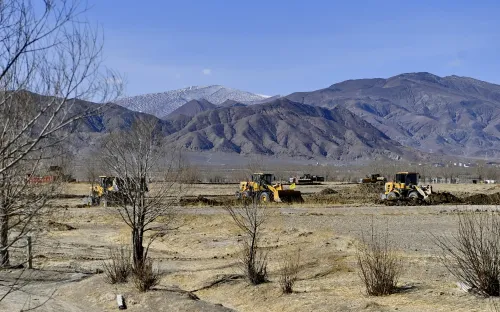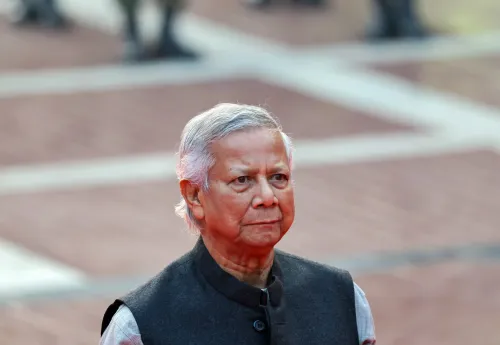Pakistan: Lawyers' Protest Causes Turmoil in Islamabad

Synopsis
Key Takeaways
- Lawyers protested against the Supreme Court meeting.
- JCP plans to elevate eight High Court judges.
- Opposition to the 26th Constitutional Amendment was evident.
- Increased security measures were implemented in Islamabad.
- Protests aimed at preserving judicial independence.
Islamabad, Feb 10 (NationPress) Chaos erupted once again in the capital city of Pakistan, Islamabad, as the nation’s lawyers took to the streets on Monday, voicing their opposition to a meeting at the Supreme Court aimed at finalizing the appointment of eight Supreme Court judges.
The Judicial Commission of Pakistan (JCP) is deliberating on promoting eight High Court judges to the Supreme Court, despite significant calls from numerous judges and thousands of lawyers demanding the postponement of the meeting.
Legal associations in Islamabad have strongly criticized the recent transfers of five judges to the Islamabad High Court (IHC), labeling it an attempt to create divisions within the judiciary.
In response, authorities and security personnel in Islamabad have sealed off all routes to the Supreme Court and increased their presence to manage any escalation of the protest.
Islamabad Police have also restricted access to several major entry points in the Red Zone due to the lawyers' protest.
The demonstrations resulted in the suspension of Metro bus services on various routes between Islamabad and Rawalpindi, leading to considerable inconvenience for the public.
A large crowd of lawyers gathered outside the Supreme Court in Islamabad, chanting slogans advocating for the independence of the judiciary and displaying banners in support of their cause.
The protesting lawyers have denounced the 26th Constitutional Amendment as entirely unacceptable.
The Lahore High Court Bar Association (LCBA) also filed a petition with the apex court, opposing the amendment and requesting a delay in the JCP meeting.
The controversy surrounding the judges’ transfers intensified after Justice Sarfaraz Dogar was shifted from the Lahore High Court (LHC) to the IHC, only to have his name sent to the JCP shortly after for a Supreme Court position.
This issue was raised by at least two judges of the Islamabad High Court (IHC), who reached out to SC Chief Justice Yahya Afridi and IHC Chief Justice Aamer Farooq, questioning Justice Dogar’s recommendation and demanding restoration of their seniority.
Four current judges of the Supreme Court of Pakistan suggested postponing the JCP meeting until a resolution is reached regarding a petition challenging the 26th Constitutional Amendment.
Regardless of the dissent, the JCP proceeded with its meeting, prompting the lawyers to demonstrate against any resolutions made, which they consider a direct assault on the independence and integrity of the judiciary in Pakistan.
The lawyers have pledged to organize further protests against what they term a perilous attempt to undermine the country’s judiciary and its dignity.









